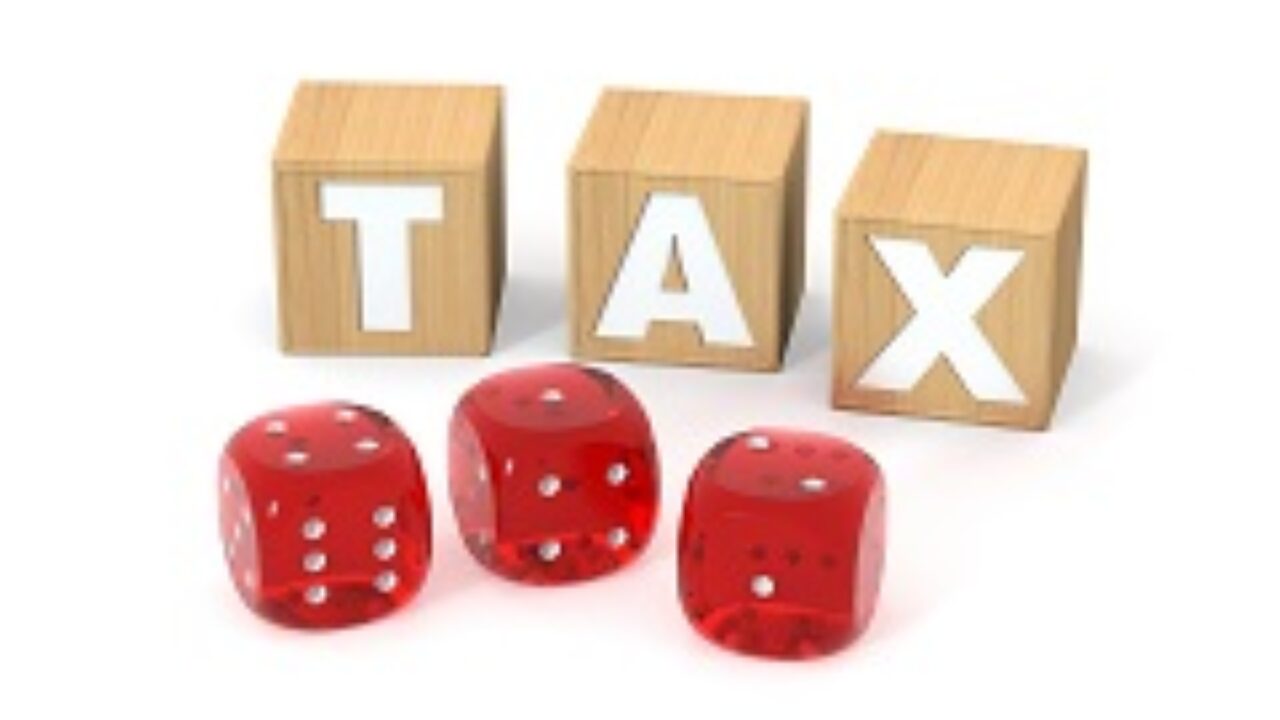Can You Claim Gambling Winnings On Your Taxes
Any money you win gambling or wagering is considered taxable income by the IRS as is the fair market value of any item you win. Gambling income isn't just card games and casinos; it also includes winnings from racetracks, game shows, lotteries, and possibly even bingo. Only if you itemize. Then you can claim the gambling losses up to the amount of your winnings as shown on your return. You have to keep good records and show ALL of your winnings as taxable income.
Most gamblers hope to win money when they visit a casino, but many fail to think about the taxes they would have to pay on their winnings. Meet George and Frank, two American friends who spend a weekend gambling at the Las Vegas Bellagio. George wins $200 playing video roulette. Frank wins $1500 on a quarter slot machine (Play here). Both men make some significant financial mistakes that could get them into trouble with the IRS.
Can You Claim Gambling Winnings On Your Taxes Owed
Mistake # 1 - Frank Fails to Pay Taxes on His Winnings
Before leaving the casino, Bellagio officials ask Frank to supply his Social Security number and fill out a W - 2G stating his $1500 winnings. When tax time rolls around, Frank forgets about the W – 2G and does not report the $1500 on his tax forms.
Could Frank Get in Trouble?
If Frank gets audited, he could indeed get in trouble with the IRS for failing to report his gambling income. Federal law mandates that slot machine winnings over $1200 must be reported to the IRS. The law also requires horse racing winnings over $600 and keno (click here) winnings over $1500 to be reported. Frank's legal obligation does not end with the W - 2G he filled out at the casino; he must also claim his winnings on Line 21 of his 1040. Failing to do this could result in stern penalties from the IRS.
What About George?
Bellagio officials did not ask George to fill out a W – 2G because his $200 earnings fell below the IRS threshold. Technically, however, he is supposed to claim his $200 winnings on Line 21 of his 1040 just like Frank. Unlike Frank, George stands little chance of getting caught if he fails to do this because there is no paper trail documenting his jackpot (read more). The only punishment George is likely to suffer is the discomfort of a guilty conscience.
If your winnings surpass the predetermined threshold, casino proprietors are required by law to have you fill out a W – 2G which reports your extra income. If you fail to submit this information to the IRS at tax time, government officials could catch a whiff of your paper trail and come after you. If your casino winnings do not surpass the predetermined threshold, you are still required by law to report the money, but without written evidence, the IRS stands little chance of catching you in your dishonesty.
Mistake # 2 - Frank Itemizes His $4000 Gambling Loss and Cheats Himself Out of the $5,950 Standard Deduction

Frank carefully records his losses at the Bellagio in a small notebook he keeps in his pocket. At the end of the weekend, he calculates a $4000 loss. When tax time rolls around, Frank itemizes this $4000 loss and feels like a tax-savvy gambling superstar. Unfortunately, the $4000 is Frank's only itemized deduction for the year and he's actually cheated himself out of a significant chunk of money. If Frank had bothered to do some research, he would have known that the standard deduction in 2012 is $5950. By itemizing only his $4000 loss at the Bellagio, Frank cheated himself out of an additional $1950 deduction.
The Moral of the Story
You can itemize gambling losses on your tax forms in order to recoup some of your lost money, but always find out what the standard deduction is first. You will only come out ahead if your itemized deductions add up to more than the standard deduction.
Mistake # 3 - George Itemizes His Gambling Losses, Which Are Greater Than His Winnings, and Gets in Trouble
After examining the pocketful of ATM receipts he accumulated while at the Bellagio, George realizes that although he won $200, he lost a total of $800. When tax time rolls around, George reports the $800 loss under the miscellaneous deductions section on Schedule A. He also reports his $200 winnings on Line 21 of his 1040. Unfortunately, George does not realize that deducted gambling losses cannot legally exceed gains. He gets audited and fined for failing to comply with this IRS regulation. It is perfectly acceptable to deduct your gambling losses, but you must also report your winnings. On top of that, your claimed losses may not exceed your stated winnings. George can legally claimed a $200 loss because he won $200, but he cannot legally claim an $800 loss in this scenario.
Mistake # 4 - George Fails to Document His Gambling Activities in an IRS-Approved Fashion
George is notified by the IRS that he is being audited and needs to provide legal documentation of the wins and losses he accumulated at the Bellagio. He digs through his suitcase, reassembles his collection of ATM and players card receipts, and submits these slips of paper to the IRS in a manila envelope. IRS officials reject his envelope, stating that this piecemeal form of documentation is unacceptable.
Conclusions
It is wise to track your casino expenditures, but saved receipts are not enough in the case of an IRS audit. Wins and losses should be logged in a notebook which includes the location, date, and amount of money won or lost. Game stubs are also acceptable documentation, but ATM and players club receipts are not.
All Americans must report gambling winnings to the IRS, regardless of what state or country they are in when they win. Gambling proprietors are required by law to report guest winnings that exceed certain predetermined amounts to the IRS. If you don't report your winnings and are audited, you could get in trouble.
Citizens are permitted to claim gambling losses on the miscellaneous deductions section in Schedule A, but losses may not exceed winnings. If you're thinking about itemizing gambling losses on your taxes, experiment with different deduction scenarios to see which will give you the biggest benefit.

Do You Have To Claim Gambling Winnings On Your Taxes
Finally, keep track of your wins and losses in a detailed notebook. If you do get audited, IRS officials will only accept certain forms of financial documentation.
What Else Might Interest You:
Online Roulette - Some basics for beginners Top 10 Online Casinos
Top 10 Online CasinosCOMMENTS:
By loading and joining the Disqus comments service below, you agree to their privacy policy.

Can You Claim Gambling Winnings On Your Taxes Without

Letting the Door Hit You in the Tax on the Way Out: IRS Issues Relief Procedures for Certain Persons Who Relinquished US Citizenship But Wish to Complete Tax Compliance
The Dual Liability Provisions for a Responsible Person under California Sales Tax Law
Can You Net Gambling Wins With Gambling Losses on Your Tax Return?
Can You Claim Gambling Winnings On Your Taxes Due
Taxpayers who gamble casually (meaning they do not qualify as being professional gamblers under the tax code) can net wins and losses within a single session of gambling, but not from different days. The total of multi-session wins would be reportable as “other income” on Form 1040 but the total of multi-session losses would be reported on Schedule A under “Other Itemized Deductions,” up to the amount of your winnings.
Can You Claim Gambling Winnings On Your Taxes Refund
Because casinos report larger winnings to the IRS on Form W-2G, failing to use this method may cause the IRS to see a discrepancy and trigger an audit. The general IRS advice on this topic can be found on the IRS’s website (click here).
The netting ofwins and losses is addressed by the Tax Court in Shollenberger v.Commissioner, T.C. Memo. 2009-306 (2009), where the court followed IRSguidance in stating:
A key question in interpreting §165(d) is the significance of the term “transactions.” The statute refers to gains and losses in terms of wagering transactions. Some would contend that transaction means every single play in a game of chance or every wager made. Under that reading, a taxpayer would have to calculate the gain or loss on every transaction separately and treat every play or wager as a taxable event. The gambler would also have to trace and recompute the basis through all transactions to calculate the result of each play or wager. Courts considering that reading have found it unduly burdensome and unreasonable. See Green v. Commissioner, 66 T.C. 538 (1976); Szkirscak [sic] v. Commissioner, T.C. Memo. 1980-129. Moreover, the statute uses the plural term “transactions” implying that gain or loss may be calculated over a series of separate plays or wagers.
The better view is that a casual gambler, such as the taxpayer who plays the slot machines, recognizes a wagering gain or loss at the time she redeems her tokens. We think that the fluctuating wins and losses left in play are not accessions to wealth until the taxpayer redeems her tokens and can definitively calculate the amount above or below basis (the wager) realized. See Commissioner v. Glenshaw Glass Co., 348 U.S. 426 (1955). For example, a casual gambler who enters a casino with $100 and redeems his or her tokens for $300 after playing the slot machines has a wagering gain of $200 ($300-$100). This is true even though the taxpayer may have had $1,000 in winning spins and $700 in losing spins during the course of play. Likewise, a casual gambler who enters a casino with $100 and loses the entire amount after playing the slot machines has a wagering loss of $100, even though the casual gambler may have had winning spins of $1,000 and losing spins of $1,100 during the course of play. [Fn. ref. omitted.]
Thus, the net win from the session as a whole (e.g., when the taxpayer actually cashes out for the day) would be reported under “other income” while the net loss from another day’s session would belong on Schedule A.
Fortunately, those who use casinos’ player cards often can get a statement from the casino breaking down daily wins and daily losses. Some casinos, however, decline to provide this level of detail to their own customers despite having such records. Instead, those casinos will provide only an annual net win or loss statement. As this may cause problems in an IRS audit if the auditor is a stickler for technicalities, a taxpayer may prefer to patronize casinos which provide the additional detail as a higher-level of customer service.
The author of this post is Daniel W. Layton, a former IRS trial attorney and ex-federal prosecutor in the Tax Division of the Los Angeles U.S. Attorney’s Office. He is a tax attorney representing private clients in Newport Beach and Fullerton, Orange County, California.
Posted on 12/11/2019 by Daniel Layton.



